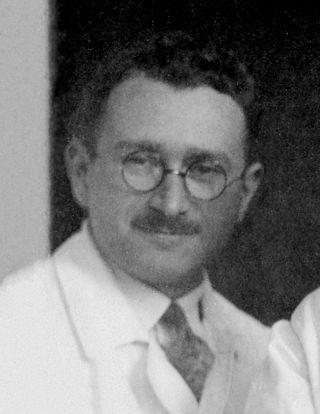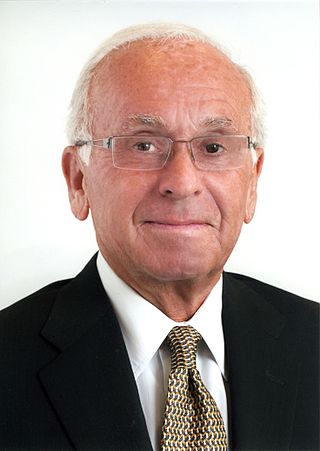
Boxing is a combat sport and a martial art in which two people, usually wearing protective gloves and other protective equipment such as hand wraps and mouthguards, throw punches at each other for a predetermined amount of time in a boxing ring.

Muay Thai, sometimes referred to as Thai boxing, is a combat sport that uses stand-up striking, sweeps, and various clinching techniques. This discipline is known as the "Art of eight limbs", as it is characterised by the combined use of fists, elbows, knees and shins. Muay Thai became widespread internationally in the late 20th to 21st century, when Westernised practitioners from Thailand began competing in kickboxing and mixed-rules matches as well as matches under Muay Thai rules around the world. The professional league is governed by The Professional Boxing Association of Thailand (P.A.T.), sanctioned by The Sports Authority of Thailand (S.A.T.).

Although women have participated in boxing for almost as long as the sport has existed, female fights have been effectively outlawed for most of boxing's history until recently, with athletic commissioners refusing to sanction or issue licenses to women boxers, and most nations officially banning the sport. Reports of women entering the ring go back to the 18th century.

Amateur sports are sports in which participants engage largely or entirely without remuneration. The distinction is made between amateur sporting participants and professional sporting participants, who are paid for the time they spend competing and training. In the majority of sports which feature professional players, the professionals will participate at a higher standard of play than amateur competitors, as they can train full-time without the stress of having another job. The majority of worldwide sporting participants are amateurs.

Sir Ludwig Guttmann was a German-British neurologist who established the Stoke Mandeville Games, the sporting event for people with disabilities (PWD) that evolved in England into the Paralympic Games. A Jewish doctor who fled Nazi Germany just before the start of the Second World War, Guttmann was a founding father of organized physical activities for people with disabilities.

The 1994 Commonwealth Games were held in Victoria, British Columbia, Canada, from 18 to 28 August 1994. Ten types of sports were featured at the Victoria Games: athletics, aquatics, badminton, boxing, cycling, gymnastics, lawn bowls, shooting, weightlifting, and wrestling.

Sports medicine is a branch of medicine that deals with physical fitness and the treatment and prevention of injuries related to sports and exercise. Although most sports teams have employed team physicians for many years, it is only since the late 20th century that sports medicine emerged as a distinct field of health care. In some countries, sports medicine is a recognized medical specialty. In the majority of countries where sports medicine is recognized and practiced, it is a physician (non-surgical) specialty, but in some, it can equally be a surgical or non-surgical medical specialty, and also a specialty field within primary care. In other contexts, the field of sports medicine encompasses the scope of both medical specialists as well as allied health practitioners who work in the field of sport, such as physiotherapists, athletic trainers, podiatrists and exercise physiologists.

Boxing gloves are cushioned gloves that fighters wear on their hands during boxing matches and practices. Unlike "fist-load weapons" which were designed as a lethal weapon, modern boxing gloves are non-lethal, designed to protect both the opponent's head and the fighter's hand during a bout. Sparring and other forms of boxing training have their own specialized gloves.

Professional boxing, or prizefighting, is regulated, sanctioned boxing. Professional boxing bouts are fought for a purse that is divided between the boxers as determined by contract. Most professional bouts are supervised by a regulatory authority to guarantee the fighters' safety. Most high-profile bouts obtain the endorsement of a sanctioning body, which awards championship belts, establishes rules, and assigns its own judges and referees.

Amateur boxing is a variant of boxing practiced at the collegiate level, at the Olympic Games, Pan American Games and Commonwealth Games, as well as many associations.

Representation of the island of Ireland at the British Empire Games has varied:

Chronic traumatic encephalopathy (CTE) is a neurodegenerative disease linked to repeated trauma to the head. The encephalopathy symptoms can include behavioral problems, mood problems, and problems with thinking. The disease often gets worse over time and can result in dementia.

The International Boxing Association (IBA), previously known as the Association Internationale de Boxe Amateur (AIBA), is an international sports organization that sanctions amateur (Olympic-style) boxing matches and awards world and subordinate championships. IBA consists of five continental confederations: AFBC, AMBC, ASBC, EUBC, and OCBC. The association includes 203 national boxing federations.
Sport in England plays a prominent role in English society. Popular teams sports in England include field hockey, cricket, rugby union, rugby league, and netball. Major individual sports include badminton, athletics, tennis, boxing, golf, cycling, motorsport, and horseracing. Cricket is regarded as the national summer sport. Association football is the most popular sport, followed by Cricket, Tennis and Rugby. A number of modern sports were codified in England during the nineteenth century, among them cricket, rugby union, rugby league, football, field hockey, bandy, squash, tennis, and badminton. The game of baseball was first described in 18th century England.

The Irish Athletic Boxing Association Ltd. (IABA) is the national governing body for amateur boxing on the island of Ireland, developing and controlling the sport. Founded in 1911, the IABA operates from the National Stadium in Dublin, the only purpose built amateur boxing stadium in the world.

In boxing, a weight class is a measurement weight range for boxers. The lower limit of a weight class is equal to the upper weight limit of the class below it. The top class, with no upper limit, is called heavyweight in professional boxing and super heavyweight in amateur boxing. A boxing match is usually scheduled for a fixed weight class, and each boxer's weight must not exceed the upper limit. Although professional boxers may fight above their weight class, an amateur boxer's weight must not fall below the lower limit. A nonstandard weight limit is called a catchweight.

Nicola Virginia Adams is a British former professional boxer who competed from 2017 to 2019. She retired with an undefeated record and held the World Boxing Organization (WBO) female flyweight title in 2019. As an amateur, she became the first female boxer to become an Olympic champion after winning gold at London 2012, and the first double Olympic champion following a second gold medal at Rio 2016, both in the flyweight division. As of 27 May 2016 she was the reigning Olympic, World and European Games champion at flyweight, and won the entire set of amateur championships available to her – Olympic, Commonwealth and European Games' titles, and the World, European and European Union championships.
Michael Norgrove was a British professional boxer from Woodford Green, London. Nicknamed the "Zambezi Hitman", at the time of his death Norgrove had an unbeaten professional record. His death occurred several days after he was taken ill during a boxing match in London, and marked the United Kingdom's first post-match boxing fatality of the 21st century. Norgrove's death reopened the debate as to the safety of boxing as a sport.

Ronald J. Ross is a Cleveland, Ohio radiologist known for research on brain injury in professional and amateur boxers and for the first clinical use of nuclear magnetic resonance imaging on human patients. Ross is also credited with the first use of head and whole body computed tomography imaging (CT) in a private clinical setting in the United States.

James David Forbes Calder is a British orthopaedic surgeon specialising in sporting injuries. He has built a reputation for treating foot and ankle injuries in top international athletes - soccer players from the English Premier League and European clubs including Paris St Germain, AC Milan, Barcelona FC, Real Madrid, Olympique de Marseille FC in addition to rugby players from England, Ireland, Scotland and Wales, GB Olympic teams, England and Indian cricket teams and UK Athletics.

















